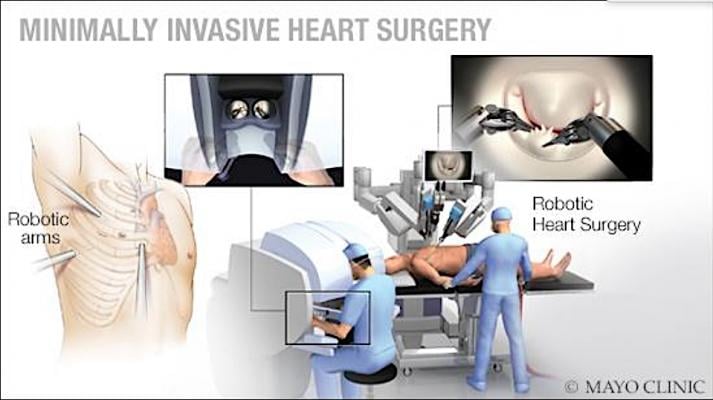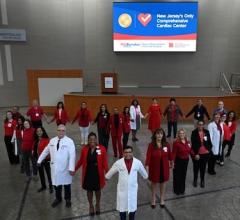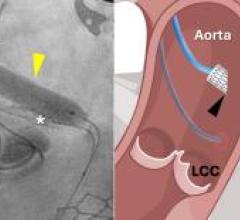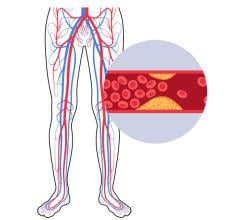
January 20, 2020 — Research has found that repairing the mitral valve earlier, before the mitral valve prolapse progresses, can correct the valve's structure and potentially protect the heart's function to avoid needing a more complex valve replacement later, or developing heart failure.
The current standard of care for mild mitral disease is to monitor the valve function with regular evaluations and sometimes medication. However, for people with severe mitral valve regurgitation, including those without symptoms, surgery may be the best option.
Richard Daly, M.D., a Mayo Clinic cardiovascular surgeon, explains that when mitral valve leakage is severe, oxygen-rich blood cannot move efficiently through the heart to the rest of the body, causing shortness of breath and fatigue. Advanced mitral valve disease progresses quickly and can lead to heart failure. People with less mitral backflow may not feel symptoms, but they are still at risk of heart failure and other complications, such as stroke, blood clots, atrial fibrillation and pulmonary hypertension.
Minimally invasive robotic surgery is now being considered for less sick patients to help prevent mitral disease from progressing. Mayo Clinic uses the Da Vinci surgical robot to perform minimally invasive heart surgeries.
Daly said open-heart surgery and minimally invasive robotic surgery use the same technique to correct mitral valve leakage, but they access the heart in different ways. With the robotic procedure, surgeons do not cut through the breastbone or open the chest cavity. Instead, they make several incisions, each about an inch long. One surgeon works from a remote console and views the heart through a high-definition 3D video monitor to conduct the surgery. Each tiny movement of the surgeon's hands at the console controls is precisely replicated by small robotic instruments moving inside the patient's chest. At the bedside, another surgeon works with the first surgeon and performs some aspects of the surgery to make sure the procedure is performed safely and efficiently.
"I was skeptical at first because I practiced open-heart mitral valve repair for years, and robotic surgery requires learning a new technique," Daly says. "But now I feel that, for the right patients, robotic repair is clearly superior, with better visibility and equal movement of hands. I think this is quite an advance."
Mayo Clinic physicians have repaired more than 900 mitral valves using the robotic technique since 2008. More than half of all mitral valve repairs at Mayo are now performed robotically. Besides using smaller incisions, the minimally invasive procedure has a shorter hospital stay ― typically three days, compared to five or six days for an open-heart procedure. Patients usually recover stamina and energy quicker with robotic surgery, and are back to work and normal activities a few weeks sooner.
For more information at the Mayo Clinic News Network


 February 06, 2026
February 06, 2026 









